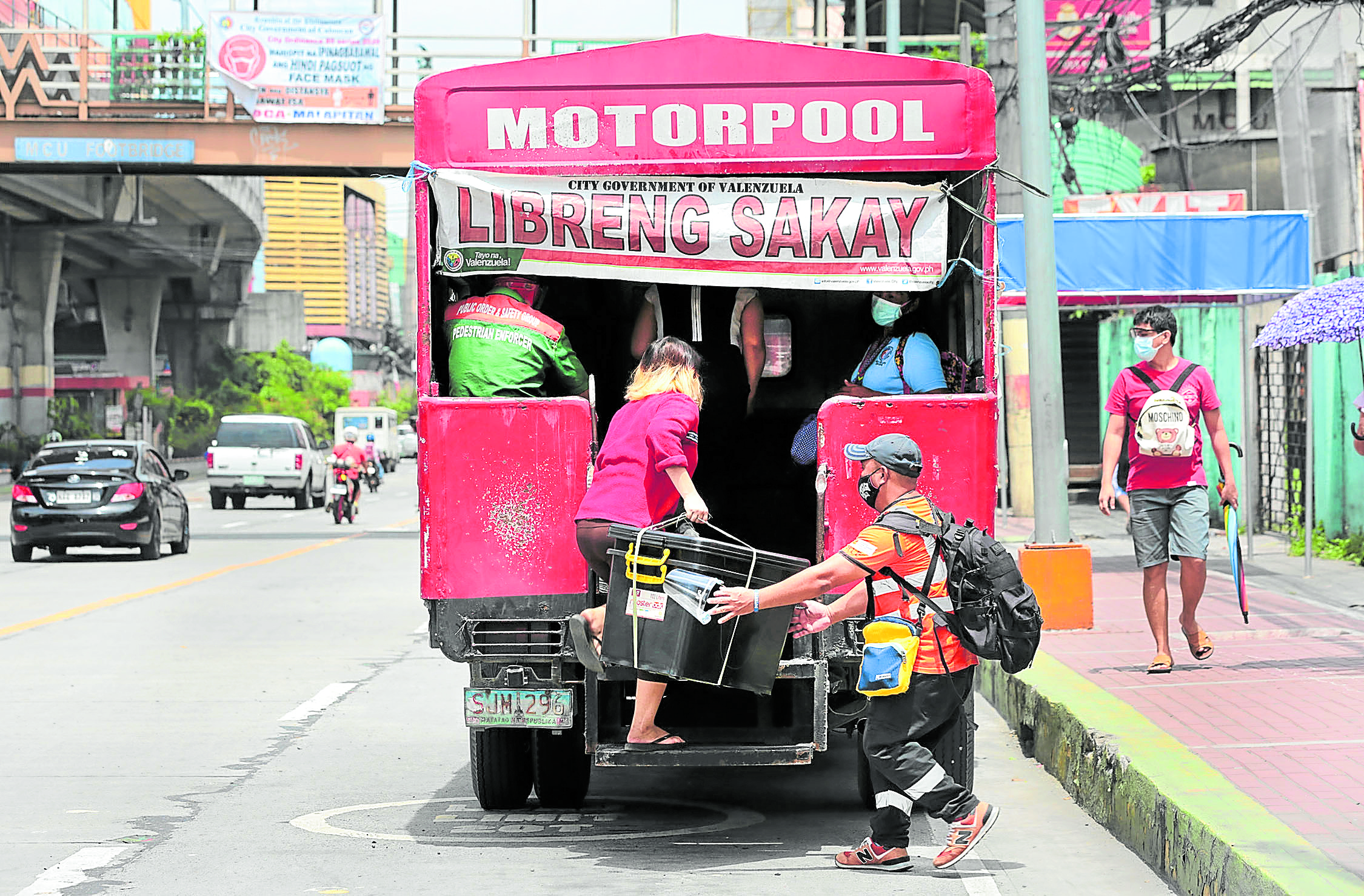OCTA proposes ‘hard GCQ’ or ‘soft MECQ’ to contain COVID-19 surge

(FILE) Commuters ride a free shuttle service operated by the City of Valenzuela in Monumento, Caloocan City on Tuesday, August 4, 2020, as the National Capital Region (NCR) reverted back to a stricter modified enhanced community quarantine (MECQ) due to the raising COVID-19 cases. INQUIRER PHOTO / GRIG C. MONTEGRANDE
MANILA, Philippines — A group of experts monitoring the COVID-19 situation in the Philippines is proposing the implementation of a “hard general community quarantine” (hard GCQ) or a “soft modified enhanced community quarantine” (MECQ) in a move to contain the current surge of cases in the country.
In a press briefing, professor Ranjit Rye of the UP OCTA Research Team said that while following minimum health public standards are important, this approach alone will not be enough to contain the surge in COVID-19 cases.
“The purpose of our circuit breaker proposal or you can call it a ‘hard GCQ’, ‘soft ECQ’ or whatever name the government decides to use moving forward, it has to have the impact of reducing the [reproduction rate],” Rye said.
“Because if we reduce the [reproduction rate], which is now at 1.9, to something like 1 in the next two to four weeks, it’s going to eventually lower infections. It will have a definite impact on hospitalization and deaths,” he added.
Under a hard GCQ, Rye said this entails “returning to the GCQ that we understand last September 2020 where there is limitations incapacity, there are limitations as far as business establishments are concerned, [and] there are mobility restrictions.”
In his presentation, among OCTA’s recommendations under a hard GCQ include the issuance of quarantine passes for the workforce only, as well as discouraging the public in indoor dining in restaurants and attending social gatherings.
“The [current] GCQ has a rather liberal view of social gatherings and maybe we might need to restrict that,” Rye said.
However, if a hard GCQ would not work after two weeks, a soft MECQ can instead be implemented, said Rye.
“We may need to consider stricter mobility restrictions or an even stricter quarantine classification. The goal is to reduce the reproduction rate significantly,” Rye said.
Rye said that the soft MECQ being proposed is different from the MECQ implemented in August 2020 in the sense that the operation of government offices and industries, including businesses, will continue.
However, for the government and the industries, a significant percentage of the workforce are allowed to work through other arrangements such as work-from-home.
Malls and groceries and other essential businesses will also continue to operate but at limited capacity. Meanwhile, all social gatherings are prohibited during the quarantine period, said Rye.
Rye said they have presented the recommendations to the mayors of Metro Manila.
/MUF
For more news about the novel coronavirus click here.
What you need to know about Coronavirus.
For more information on COVID-19, call the DOH Hotline: (02) 86517800 local 1149/1150.
The Inquirer Foundation supports our healthcare frontliners and is still accepting cash donations to be deposited at Banco de Oro (BDO) current account #007960018860 or donate through PayMaya using this link.